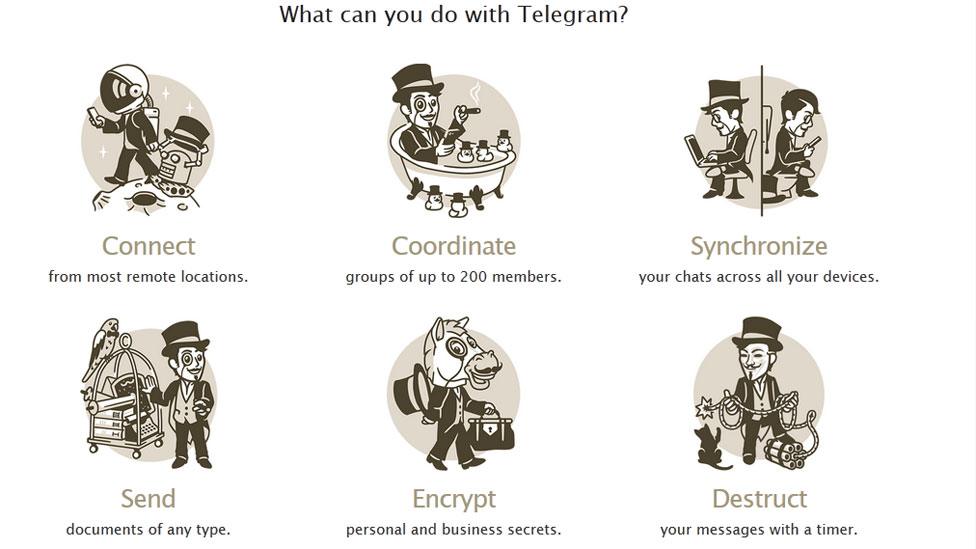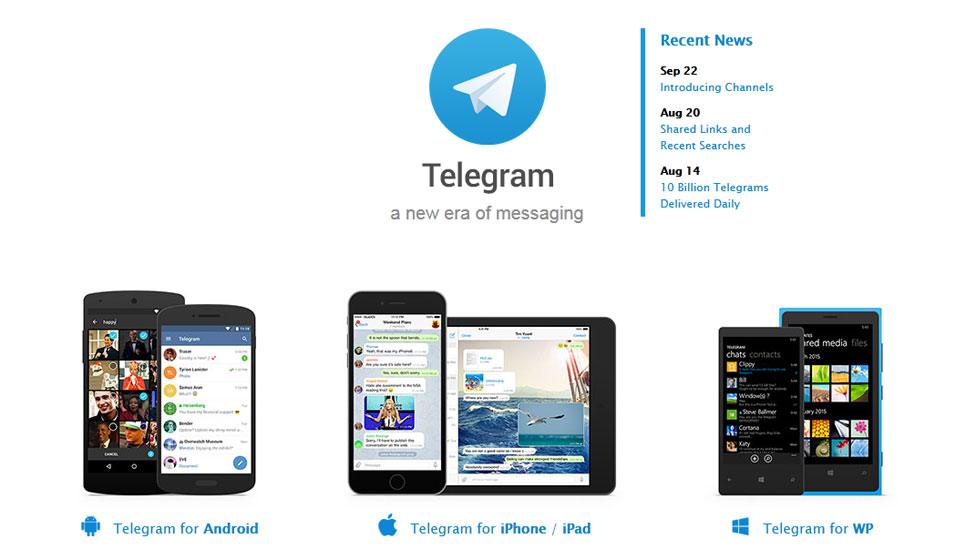Telegram denies Iranian mass breach
- Published

Encrypted instant messaging service Telegram has denied hackers breached its systems to gain the telephone numbers of 15 million Iranian users.
Checks on phone numbers had revealed "publicly available data", it said.
But it admitted that hackers may have compromised more than a dozen accounts by intercepting SMS verification codes but added this was not a "new threat".
It said users in "certain countries" should use "two-step verification to protect your account with a password".
Collin Anderson, a security researcher working with human rights group Amnesty, said hackers had "identified" the phone numbers of 15 million Iranian users and "compromised" more than a dozen Iranian accounts.
They had gained entry to the accounts after SMS codes sent to users wishing to log on to the service from a new phone had been "intercepted", he said.
Using the codes, the hackers could add new devices to a person's Telegram account, enabling them to read chat histories and new messaging, Mr Anderson said.
The use of SMS codes was a particular problem in a country where mobile companies were owned or influenced by the government, he said.
"We have over a dozen cases in which Telegram accounts have been compromised through ways that sound like basically co-ordination with the cell-phone company," he said.
The attacks - by hacking group as Rocket Kitten, which regularly carries out "a common pattern of spear-phishing campaigns reflecting the interests and activities of the Iranian security apparatus" - could have jeopardised the communications of activists, journalists and other users in sensitive positions in Iran, he added.
Warning to users
Telegram promotes itself as an ultra-secure instant messaging system with end-to-end encryption.

The service, which has its headquarters in Berlin, says it has 100 million active subscribers and is widely used in the Middle East, including by the so-called Islamic State group.
In a blog post, external, the Telegram team denied that its systems had been breached.
"Certain people checked whether some Iranian numbers were registered on Telegram and were able to confirm this for 15 million accounts," it said.
"As a result, only publicly available data was collected and the accounts themselves were not accessed.
"Since Telegram is based on phone contacts, any party can potentially check whether a phone number is registered in the system.
"This is also true for any other contact-based messaging app."
What is encryption?
On the issue of the possible interception of SMS codes, the company wrote: "We've been increasingly warning our users in certain countries about it, and last year we introduced two-step verification specifically to defend users in such situations.
"If you have reasons to think that your mobile carrier is intercepting your SMS codes, use two-step verification to protect your account with a password.
"If you do that, there's nothing an attacker can do."
Iranian officials have declined to comment, but have in the past denied government links to hacking.
Both Facebook and Twitter are banned in Iran, and in May the government ordered instant messaging apps such as Telegram to store data about Iranian users inside the country.
The Supreme Council of Cyberspace gave companies one year to comply.
- Published7 October 2015

- Published31 May 2016
